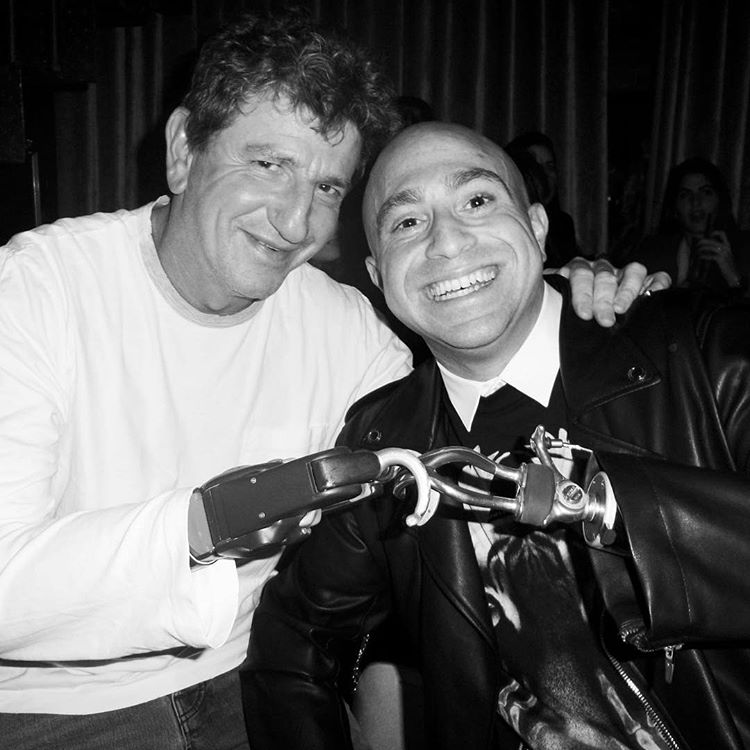It was a cold night in October 2012, when Givati Brigade company commander Ziv shilon was leading his men in an area close to Israel-Gaza border. It was his last mission in the position. They were searching for explosive devices and underground tunnels. Ziv was assigned a task to open the border fence gate so Israeli tanks could return to the homeland.
Due to fog, the visibility wasn’t good enough so he decided to go to open the fence gate alone without risking his men’s lives. He left his men approximately 250-meters behind his position. There was also the risk of snipers in the area but he didn’t care for his life. Shilon told The Jerusalem Post,
“When I started as a commander in the IDF, I knew that you must always lead your soldiers, no matter the situation.”
I ran to that gate, opened the lock and took about three steps forward. I felt an enormous explosion that threw me backward.
Before he could open the gate, he was attacked. He saved his men life, but now his life was on the risk. When he finally came in conscious, Ziv saw blood on his left hand. He tried to stop blood by applying some pressure to the wound with his right hand, only to find out that his injured hand is no longer connected to his arm.
Shilon said, “Within seconds, I understood that the worst thing that can happen to me and to Israel was to be kidnapped by a Hamas terrorist. By some form of miracle, I gathered the leftovers of my arms and managed to run some 250 meters from the Gaza border straight to my vehicle,”
After the first aid, he was evacuated by helicopter to the hospital. He was in a critical condition and it took him four days to come back to conscious. He underwent eight surgeries and was given 52 bottles of blood, more than eight times a normal health person has in his body.
While remembering the incident, Shilon said, “When I finally stabilized, I realized that now the real battle of my life has begun. During the first few months, it wasn’t only the pain and the bad news, but the feeling that a second ago I was a company commander with responsibility for 130 combat soldiers, and now I need help to take showers, eat and dress,”
He mentioned his after-injury struggle.
The story of how Rami Beracha was injured
Bracha served in the IDF in Battalion 890 of the Paratroopers Brigade. It was during the First Lebanese War, that he was sent to a rescue operation that Beracha stepped on a mine and was severely wounded, losing his right hand and left foot. After a long rehabilitation, Beracha returned to reserve military service in an elite unit.
“I was where they were and I was where they are now, but I was also where they have not yet been. There is one very, very fundamental and distinct intersection that one makes a choice: Am I now going to fly in heaven, or am going to be grounded and accept this story.” Says Rami Beracha (Quote from Wikiquote).
When he was discharged from the rehabilitation center after one year, Shilon said, did he understand that much of the world was not built for those with disabilities.
He said, “With this understanding, I started to research and develop companies and academic programs, mental wellness programs for wounded soldiers like me. I wanted to help them regain their ability to be a part of that world.”
Shilon launched an assistant program which helps injured veterans who are commencing their studies at Herzilya, the same place, he studied law. He also started a fitness program for young people at Ofek Juvenile Prison.
His latest project is a collaborative project with a fellow disabled veteran Aryeh Katz and an industrial designer Miri Berger, who was already working on a technology-based solution for a man who had lost his hand because of an accident.
Together, they co-founded a technology start-up, 6Degrees. The technology start-up is working on a wearable gadget that can control smart devices. This will enable people with upper-limb deficiency to use smart devices. The deficiency could be due to birth or as a result of some accident.
The company is guided by a successful hi-tech investor – Rami Beracha. He was also severely wounded during a war.
Shilon believed the program and wants to bring real change for the people who are suffering due to upper-limb deficiency.
He said, “I was their first tester in Israel, and I understood that they were developing something great. We have expanded the company, not just to replace a computer mouse, but for all operating systems; not only for people with amputations, but also for people with Parkinson’s, where we know how to filter out the tremors, and [for] kids with cerebral palsy,”
“There are more than 300 million people all over the world dealing with loss of fine motor skills. That is a lot of people who can’t really control technological devices, as they lack the ability use touch screens or a computer mouse, and voice control will never be as precise as imitating hand movement.”
6Degress’s gadget is lightweight and can connect via Bluetooth to any smart device. It uses a self-calibrating and adaptable algorithm. The user has to place the battery-operated bank on his upper arm, and within minutes he can control the device with accuracy, according to his limits or needs.
The company has designed very light-weight, wearable, and unobtrusive prototypes to help young kids and disabled veterans. This will help them to feel normal and complete again.
Shilon said, “As the older generation, we struggle to understand the meaning of gaming in the world of children today. We used to play soccer or basketball in the playground. Today, without being able to play games with your friends, it’s like not being able to play soccer in the playground during break,”
“And at the other end of the spectrum, we are all temporarily able. The elderly also find it difficult to steadily hold a computer mouse. For both groups, whether it’s disabilities as children or older age, we will be the best option to communicate with the world.”
6Degress is initially backed and sponsored by the leading technology entrepreneur Ron Zuckerman. The company hopes to close the first stage of funding soon. After they complete its algorithm development phase, they can go to market. It will be sold initially in Israel and will introduce in the United States by the end of 2019.
Ziv shilon is optimistic for the release of the wearable by the December of this year.
“We predict that by December of this year, we will be able to go to market with our 6Degrees technology. We can really change the life of a lot of people all over the globe, and we will do everything that we need to accomplish it,” said Shilon.


